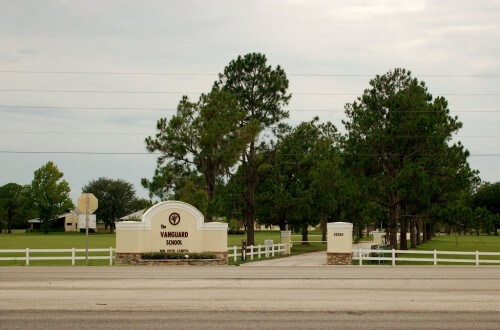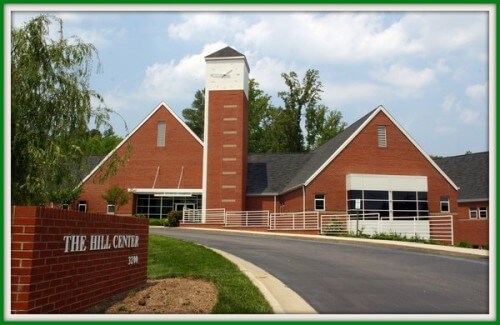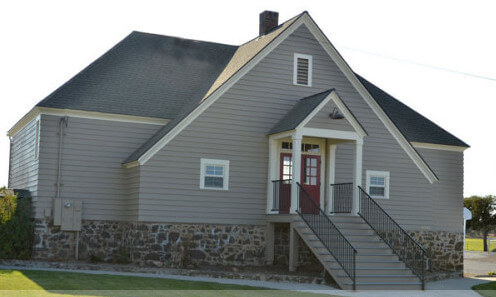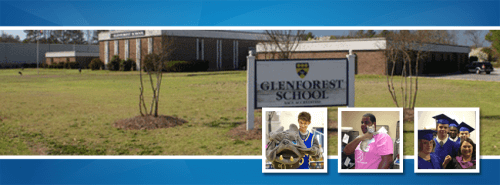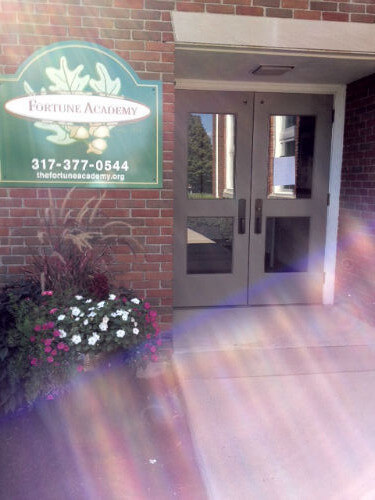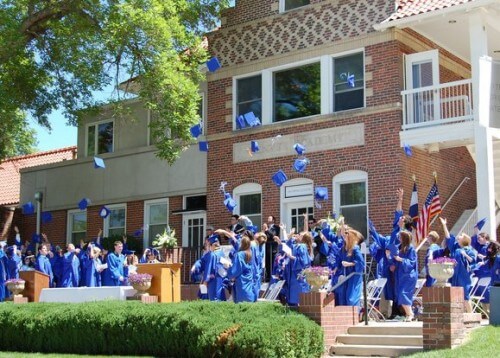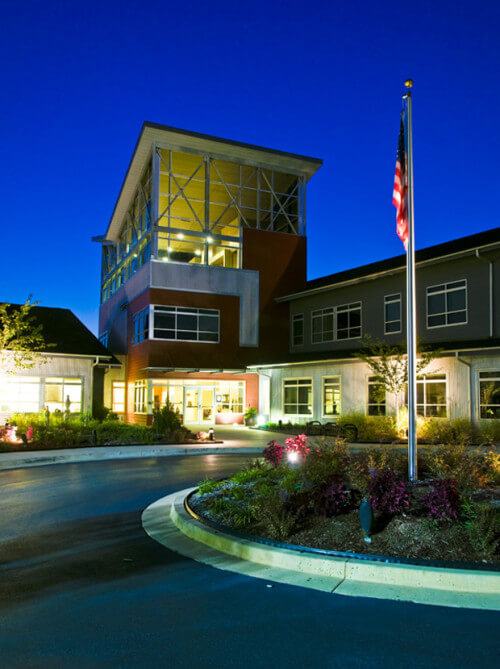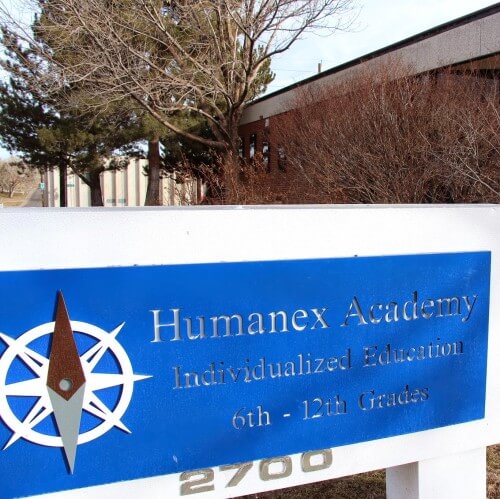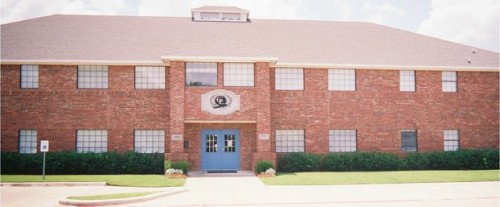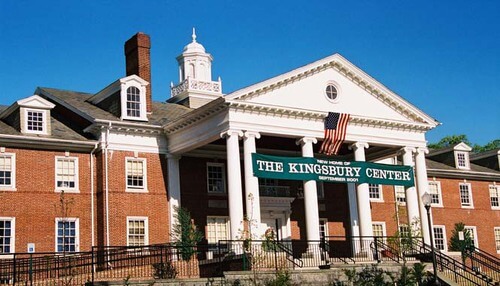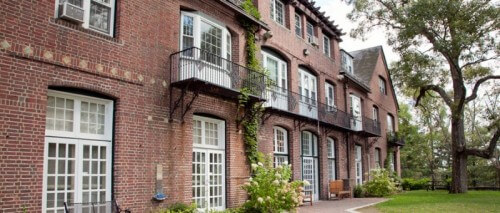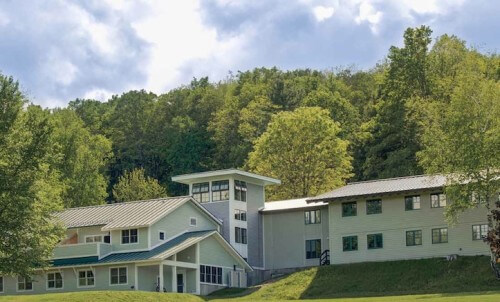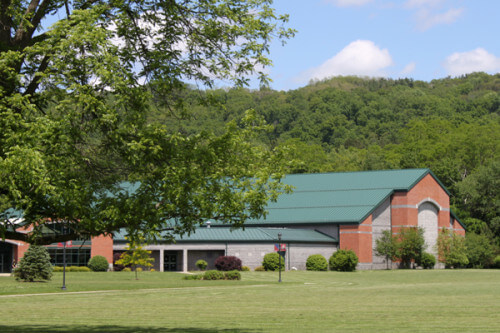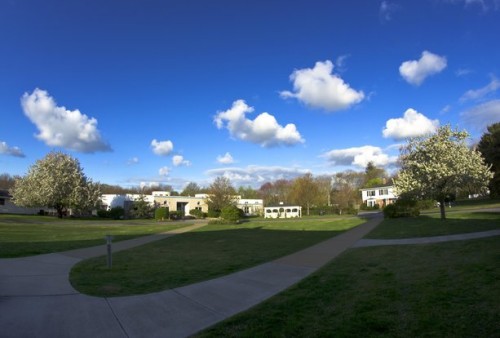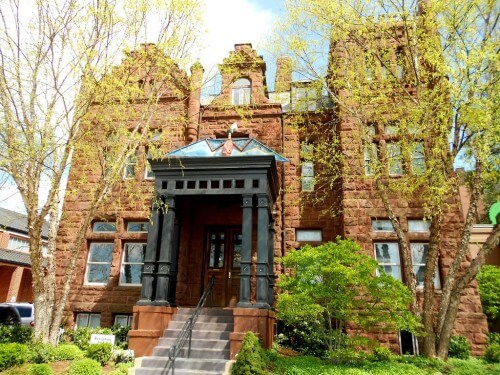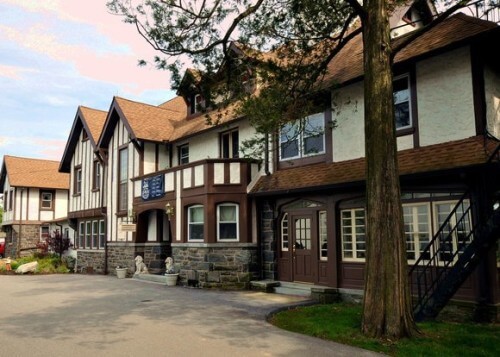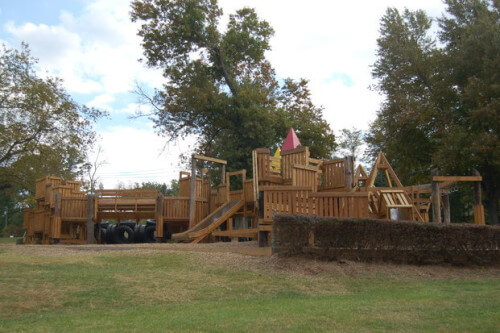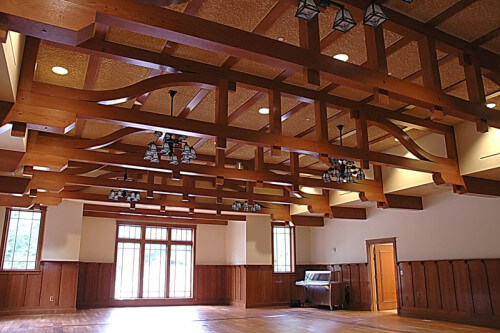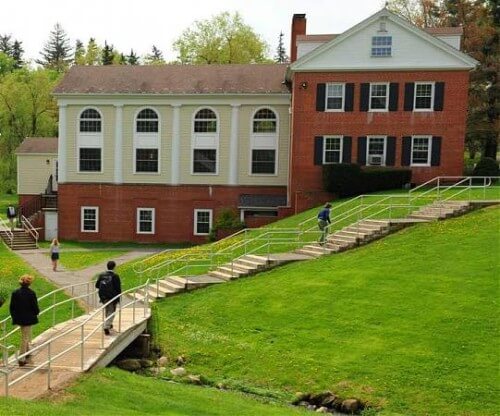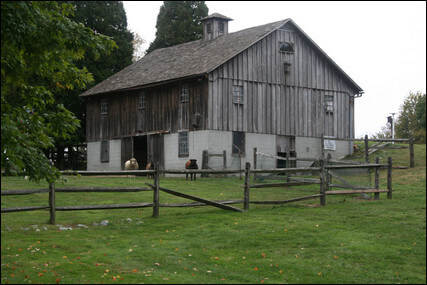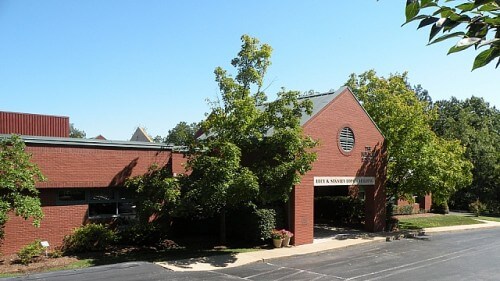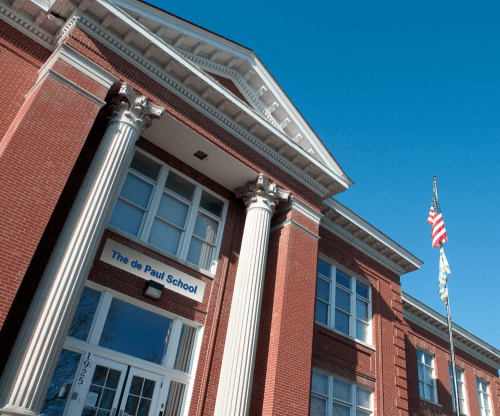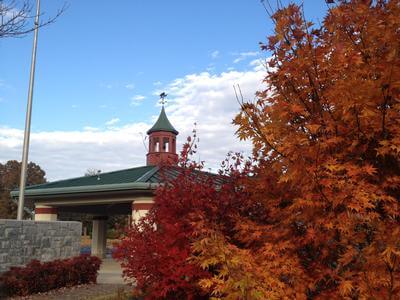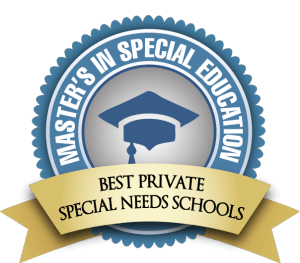
For an updated ranking, see 50 Best Private Schools for Special Needs 2018
Every student has individual learning abilities. While in many cases, one of the goals of a comprehensive education is inclusion of all students of a particular age or grade level into the same classroom, at times some students’ needs are better served in a more focused setting. From early intervention through high school, teachers and parents may decide that a student would benefit from a learning experience which combines smaller classrooms and purposeful activities with trained faculty who are educated to understand a student’s particular abilities. Our website acknowledges that it is not always productive or accurate to combine a range of learning styles and needs under a single category. A child with a hearing loss does not have the same needs as a student who has been diagnosed with autism. In the future, we would like to compile separate lists to evaluate the myriad schools which exist for specific needs. But with the acknowledgment of the imperfect terms, the editors hope to begin with this list entitled 50 Best Private Special Needs Schools in the United States, with the umbrella term used basically to designate any student who has difficulty with success in an academic environment, whether because of the need for a physical accommodation, a cognitive challenge, or an emotional obstacle. Schools for students with special needs address academic, physical, social, and/or emotional issues. In this list, specific services provided by each ranked school are outlined. The editors considered both boarding and day schools for this list, and when a ranked boarding school offers day school options, it is noted.
Selections were made based on the following:
1. The school has a rich curriculum based on variety of offerings/tools to service its students.
2. The school has a low student-teacher ratio, which is important to schools which serve all types of learning abilities, but when students struggle in more than one area, the student’s learning experience is enhanced by specialized attention from a trained teacher. Many of the schools chosen have a faculty of whom over 50% possess Master’s degrees or above.
3. The school has won awards for teaching, excellence, or architecture.
4. The school offers unique programs which transcend the basic academic curricula, like animal therapy, links to colleges, online learning options, sports, or art.
N.B. The language in this article takes its cue from the individual school’s designation. For example, if a school refers to its students as having special needs, learning disabilities (LD), learning (dis) abilities, or learning differences, our editors followed suit in that school’s write up.
The editors have attempted to create as geographically diverse a selection as possible while representing the schools which best fall under the methodology.
All stated tuition prices are subject to change; stated pricing may be approximate, and does not include additional fees such as entry or incidental fees, costs for books, meals, technology, or medical care.
1. The Devereux Glenholme School, Washington, CT
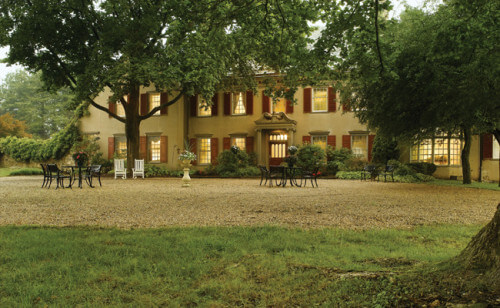
The Glenholme School is a therapeutic boarding school for young people with Asperger’s, attention deficit disorder, depression, anxiety, and other social and emotional learning differences. Its goal is to meet its students’ individual needs and prepare them for college and post-graduation employment through customized tutoring, speech therapy, occupational therapy, and individual and family positive behavior therapy. Glenholme students enjoy the school’s acclaimed equestrian and theatre arts programs and have the opportunity to take part in school-wide community service.
Profile: co-ed therapeutic boarding school for ages 10-21
Student-Faculty Ratio: 4:1
Tuition: $119,720/year
2. Little Keswick School, Keswick, VA
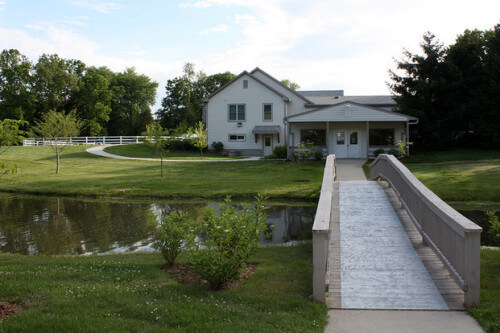
Boys come to Little Keswick School with moderately severe emotional and social challenges, as well as academic learning disabilities. Through focused assessment and creation of individualized learning plans, the school prepares students to successfully navigate social situations and future academic endeavors. Trained teachers and clinical specialists work with each student to set academic and behavioral goals, and the school provides individual, group, and family therapy to reinforce positive management of emotions and behavior. In addition to instruction in academic subjects, students have the opportunity to participate in art, woodworking, sports, and the equestrian program.
Profile: all-boys therapeutic boarding school for ages 9-15
Student-Faculty Ratio: 7:1
Awards: Partlow Insurance Best Practice Award (2011)
Tuition: $106,294/year
3. Brehm Preparatory School, Carbondale, IL
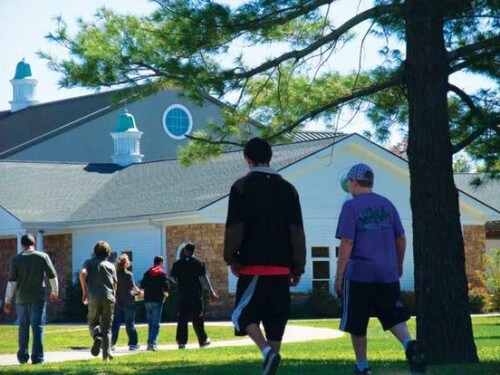
Brehm self-describes as a boarding school which holistically addresses the academic, social, and emotional needs of students with complex learning disabilities and learning differences. The 90-student school employs 150 faculty/staff who work with each student on a multi-tiered schedule, in which beginning students benefit from intensive, one-on-one instruction and then progress, as their needs and desires dictate, to more general classes of 8 or 9 students taught at grade level. Brehm employs five full-time speech language pathologists and its program is known for significant offerings in educational technology, including digitized textbooks and Kurzweil literary software.
Profile: co-ed boarding school for grades 6-12 with day school options
Student-Faculty Ratio: 5.7:1
Awards: named a Blue Ribbon School of Excellence by the U.S. Department of Education
Tuition: $66,900/year boarding; $41,400/year day
4. Triad Academy at Summit School, Winston-Salem, NC
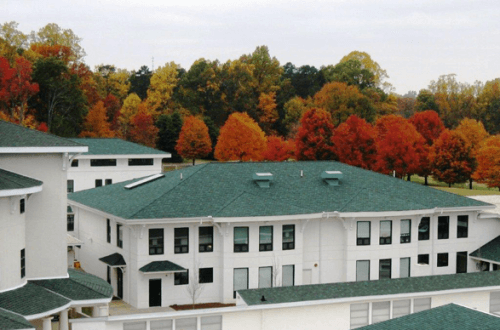
Triad Academy, a division of Summit School, provides the extra attention required by students with dyslexia and language-based learning differences. As a school, Summit’s goal is to inspire its students to think creatively, reason systematically, and work collaboratively. By making available specially trained teachers and individualized classes, Triad Academy permits students to learn the techniques and gain the help they need in order to succeed in a traditional classroom environment. Students at Triad concentrate on developing their unique talents in all subjects, and daily partake in two hours of language development, with step-by-step reinforcement of knowledge gained in all subjects. With this knowledge firmly in place, students may then transition to a different division of Summit School, aware of how their learning styles work, and knowing that the teachers and methods they gained at Triad Academy are still here to support them.
Profile: co-ed day school for grades 1-9
Student-Faculty Ratio: 3:1 (remediation classes); 8:1 (content classes)
Awards: nominated for Best Private School by Triad Moms on Main (blog) (2011); one of Ask.com’s Top Eleven Private Learning Disabilities School in the United States and Canada
Tuition: $27,800/year
5. The Vanguard School, Lake Wales, FL
After The Vanguard School was directly hit by three hurricanes in 2004, the entire campus was renovated or rebuilt, and the school, started in 1960, re-opened with new dormitories, classrooms, administrative buildings, clinic, and a Visual and Performing Arts Center. With both boarding and day school options, Vanguard serves students aged 10 through high school, and also offers a unique post-graduate program to help students prepare for the transition between high school and either college, vocational school, or the working world. The school serves students whose struggles with Asperger’s Syndrome, dyslexia, dyscalculia, or an attention deficit affect academic progress, but it does not provide therapy to students with significant behavioral needs. Vanguard is known particularly for its competitive sports teams—students have the opportunity to play myriad sports with area schools—and for its emphasis on life preparation. Graduating students are awarded either an academic diploma if they plan to go on to college, or a practical arts diploma if their goal is to pursue a vocation or career.
Profile: co-ed full-time boarding school for ages 10 through post-high school with weekly boarding options and day options
Student-Faculty Ratio: 8:1
Tuition: $44,000/year boarding school; $22,500/year day school
6. The Hill Center, Durham, NC
The Hill Center helps students with learning differences and attention deficit disorders understand and accommodate their educational needs. Each student attends the Hill Center for part of his/her school day, and returns to his/her own private or public school for the rest of the day, allowing him/her to effectively transition to traditional school full time after individualized instruction is completed (usually in 3-4 years). The Hill Center provides specialists who acknowledge academic difficulties, such as spelling and math comprehension, and social struggles, such as immature behavior and trouble standing still, who teach students to understand their learning differences. While graduates of The Hill Center learn the skills to successfully integrate in a mainstream school, they have not suppressed their personalities or unique ways. Rather, they leave with a keen understanding of their own learning styles and the tools they will need to succeed in a world that doesn’t always embrace learning differences. After participating in The Hill Center’s individualized, multi-sensory instruction, students gain the self-confidence, motivation, and knowledge they will need to successfully negotiate their future education.
Profile: co-ed day school for grades K-12
Student-Faculty Ratio: 4:1
Awards: Social Impact Exchange National Business Plan Competition (2013)
Tuition: $17,300/year (3 hours daily instruction)
7. New Leaf Academy, Bend, OR
New Leaf Academy offers therapeutic services for pre-adolescent and adolescent girls who grapple with behavioral issues which prevent them from succeeding academically and adjusting socially. The school is designed to help girls learn to make healthy choices; from making friends and following school rules to eating well and studying, New Leaf Academy attends to each student’s needs and aims to assist in the personal growth required for each girl to become a successful, positive woman. Nestled in the heart of mountainous Bend, the program features equine studies, team sports, dance classes, and various electives including artistic expression, modern history, and gardening.
Profile: all-girls therapeutic boarding school for ages 10-15
Student-Faculty Ratio: 6:1
Tuition: $87,000/year (includes summer program)
8. Ann Arbor Academy, Ann Arbor, MI

Ann Arbor Academy’s middle and high school programs work with students of average to above-average intelligence whose learning needs—autism, language-based disabilities, or attention disorders—require particular attention to certain academic subjects or personal management. While the school serves the needs of students within a particular age range, it does not assume that one’s age or grade corresponds to one’s skill set. Rather than unceremoniously distributing grades, Ann Arbor Academy analyzes students’ performance based on individual progress, and each student’s strengths and weaknesses are assessed, worked on, and discussed with parents/guardians throughout the school year. Among its many offerings, the school supports an “experiential learning” trip to Europe for upper level students, and emphasizes self-advocacy and personal organization techniques for all learners.
Profile: co-ed day school for grades 4-12
Student-Faculty Ratio: 5:1
Tuition: $16,000/year
9. Oakland School, Keswick, VA
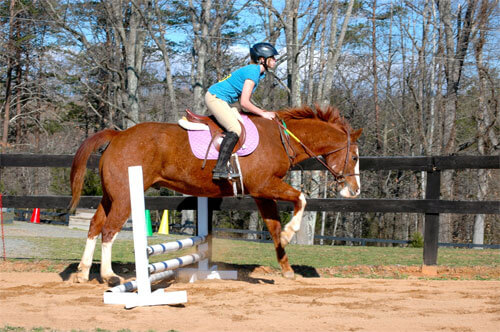
Located in Keswick, Virginia, notable for its pre-Revolutionary past, Oakland School is both established and cutting-edge. The historic grounds provide a peaceful setting for students with learning differences and communication needs to focus on academic subjects and personal progress. As a supportive educational community, Oakland School addresses its students’ needs by creating small classes which focus on reading and math skills, including its unique Upward Lift program, an intense summer school for reading education. In addition to its superior academic curriculum, the school emphasizes the importance of character development and encourages its students to demonstrate traits such as respect, trustworthiness, and citizenship. After participating in a rich curriculum supplemented by art education, literature appreciation, and life skills modeling, students leave Oakland School ready to transition into their next educational step.
Profile: co-ed boarding school with day school options for ages 6-14
Student-Faculty Ratio: 5:1
Tuition: $46,500/year (boarding); $27,500/year (day)
10. Chartwell School, Seaside, CA
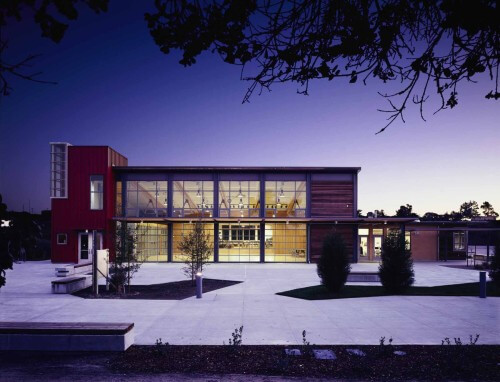
Situated in California’s spectacular Monterey Bay, Chartwell School accepts students from elementary and middle school, and also offers The New High School Project, a separate high school program. Due to difficulty with reading, writing, memorization, and other academic tasks, students at Chartwell generally require the benefit of smaller classes with specially trained faculty who help teach alternative learning methods and preparation for transition to future education or employment. As evidenced by its copious architectural and environmental awards, Chartwell School is designed to minimize the use of electricity and provide natural light as a stimulant for classroom learning. The school makes the most of its surroundings by offering an academic curriculum which incorporates gardening, art appreciation, and even water sports.
Profile: co-ed day school for ages 5-18
Student-Faculty Ratio: 5:1
Awards (selected): Top 10 Buildings in the World Award by American Institute of Architects (2009); Livable Buildings Award by Center for the Built Environment at U.C. Berkeley (2009); LEED platinum by the U.S. Green Building Council (2007); Governor’s Environmental and Economic Leadership Award, California CPA (2007)
Tuition: $21,480/year grades K-3; $31,880/year grades 4-8
11. The Woodhall School, Bethlehem, CT
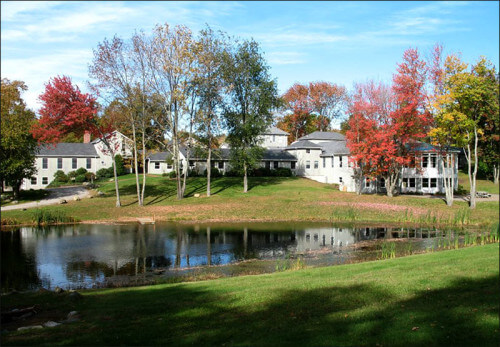
As an institution for young men with above-average intellectual abilities who have struggled in traditional classroom settings, The Woodhall School was founded to ensure that students meet their full potential. The establishment of the school’s four pillars, academics, athletics, residential life, and communications, ensure that every student develops his full self, and the school’s policy of grading both effort and means that students work toward high marks while maintaining a positive, healthy attitude. The school’s drama group, The Woodhall Players, is known throughout the community for its production of full-length dramatic productions, and its athletic programs demand, first and foremost, adherence to a rigorous code of conduct. Students graduate from The Woodhall School prepared not only for the challenges of higher education, but confident in the competent, ethical men they have become.
Profile: all-boys boarding school with day school options for grades 9-12
Student-Faculty Ratio: 3:1
Awards: The Woodhall Players have been nominated for 46 HALO awards and have won 11.
Tuition: $62,000/year boarding; $46,500/year day
12. The John Crosland School, Charlotte, NC
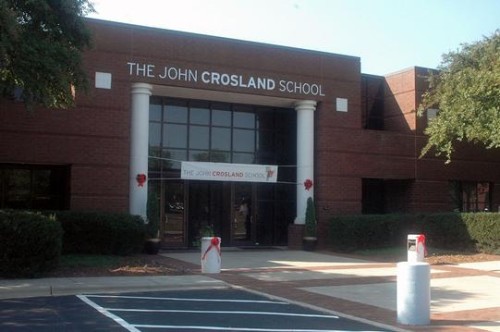
The John Crosland School is a holistic, community-oriented environment for students with attention and learning differences. Crosland’s goal is to provide students with the individualized instruction and innovative learning techniques which will enable them to successfully transition to traditional schools. While every student’s experience is different, many attend Crosland for three to five years, in which they work with specially trained teachers who assess a student’s needs and create a plan catered to the way each student processes information. Rather than memorizing or simply fulfilling a set of core academic standards, each student learns to analyze information and hone problem solving skills, and leaves the program with not only an academic education, but with a personalized technique for negotiating the world.
Profile: co-ed day school for grades K-12
Student-Faculty Ratio: 6:1
Tuition: $ 17,100/year (K); $19,520/year (1-5); $20,500/year (6-12)
13. Eagle Hill School, Hardwick, MA
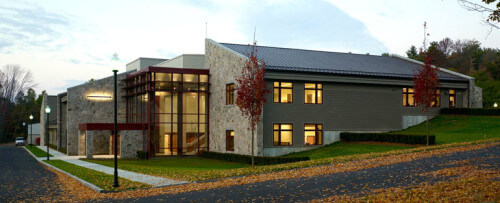
Eagle Hill School serves students with verbal, non-verbal, and attention-based learning (dis) abilities by establishing an environment of support and creative, demanding instruction. Its particularly low student-faculty ratio (3:1) ensures not only individualized attention to each student’s needs, but encourages relationships between students and teachers which last throughout a student’s tenure at the school. As a college preparatory program, Eagle Hill provides both academic instruction and core enrichment, including mandatory courses on personal finance and college orientation. Most Eagle Hill graduates go on to attend renowned universities, and many remain in contact with the school’s significant alumni/ae presence.
Profile: co-ed boarding school for grades 8-12 with day school options
Student-Faculty Ratio: 3:1
Awards: Outstanding Design Award by American School & University magazine (2013)
Tuition: $67,850/year (boarding); $48,099/year (day)
14. Commonwealth Academy, Alexandria, VA
Commonwealth Academy strives to provide a welcoming, challenging academic environment for students who learn best in small, individualized settings, and for those with attention struggles or learning disabilities. The school provides a core academic curriculum which responds to the needs and personality of each student, with a particular emphasis on writing, which is taught as a separate subject. Students learn the fundamentals of semantics, critical thinking, grammar, style, and organization, and instructors from each subject stress the importance and usage of writing skills across the curriculum. Commonwealth boasts superior technological provisions, from cutting edge computer labs and tablet availability, to SMART Boards in every classroom. Specially trained instructors take every effort to incorporate technology within their lessons, whether in the form of e-books or online homework, and teachers post weekly assessments of each student’s progress on Edline, a secure web system which allows parents and students to access their personal files and communicate with faculty and advisors.
Profile: co-ed day school for grades 1-12 (ages 6-21)
Student-Faculty Ratio: 4:1
Awards (selected): Finalist in Alexandria Chamber of Commerce Award for Technology; America’s Promise Alliance designated Promise Place; CHADD Regional Educator of the Year Award (Head of School)
Tuition: $33,900/year
15. Glenforest School, West Columbia, SC
Since it opened in 1983, Glenforest School has been committed to serving the needs of students who more effectively learn in smaller classrooms with trained teachers who understand and work to accommodate all learning styles. In addition to focus on an academic core, instructors at Glenforest work to ensure that students learn in a positive, supportive environment in which they are taught social skills, life planning, and college preparedness. The school provides an impressive technology program, including SMART Boards, audio books, tablets (the Kindle to student ratio is 1:1), and applications such as Dragon Speak, which allows students to take notes and input data on tablets or computers using voice commands. Additionally, Glenforest offers myriad athletic opportunities; from basketball to archery to soccer, students can discover interests and gain skills, and the school’s “no tryout” policy ensures that all students are included on teams and in games. The school’s state-of-the-art wellness center, opened in 2005, includes gym facilities, a weight room, and locker rooms so that each student may enhance his/her after-school curriculum.
Profile: co-ed day school for grades K-12
Student-Faculty Ratio: 5:1
Tuition: $13,500-$16,500/year (grades 1-5); $18,000-$21,504/year (grades 6-12)
16. Chelsea School, Hyattsville, MD
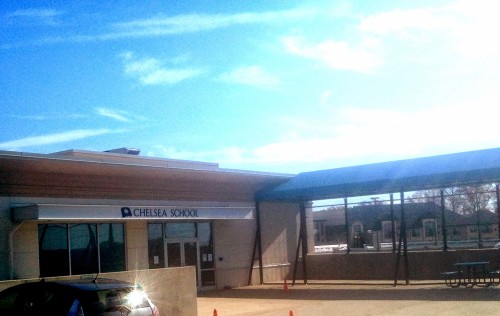
Students come to the Chelsea School with language-based learning disabilities, struggles with math facts and problem-solving concepts, and difficulties with personal and academic organization which prevent them from completely succeeding in traditional classroom settings. Of particular note is the Chelsea School’s dedication to reading and writing as skills which span all subjects; every teacher, regardless of whether he or she is teaching English, math, history, or any course, emphasizes the importance of language and instructs in student development of those abilities. In addition to an individualized, structured curriculum, each student benefits from daily meetings with a faculty advisor and receives formal guidance in study techniques and academic discipline.
Profile: co-ed day school for middle and high school students
Student-Faculty Ratio: 4:1
Tuition: $36,965/year
17. Noble Academy, Greensboro, NC
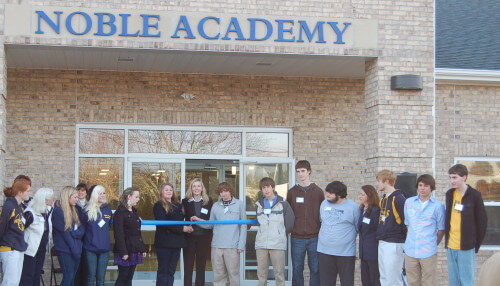
The education at Noble Academy is as diverse as its students. While many students attend the school for the duration of their primary and high school education, some stay only for a year or two as they catch up on weak areas and gain the skills they need to transition to a mainstream school or college. Typically, students contact Noble Academy when they struggle with math or writing disabilities, central auditory processing disorder (CAPD), or memory problems. The school assigns an advisor to each student and ensures that she/he is appropriately accommodated and has access to direct instruction and assistive technology in a sequential, organized setting. Students have the opportunity to participate in art programs, sports, foreign language courses, and independent studies. Uniquely, the school offers an “8th period,” which is time that is set aside each day for students to discuss their educational experiences, plan activities such as community volunteering and Student Senate, and develop teamwork, personal advocacy, and problem solving skills.
Profile: co-ed day school for grades 1-12
Student-Faculty Ratio: 8:1
Tuition: $17,840/year (grades K-9); $18,620/year (grades 10-12)
18. Fortune Academy, Indianapolis, IN
This comprehensive school for individuals with language learning differences and executive functioning is dedicated to understanding its student’s needs and providing an environment in which every person may express her/his strengths and weaknesses, knowing that she/he will be unconditionally supported. Fortune Academy’s Outreach program provides training so that teachers and parents may best understand and assist a child with special needs, as well as after-school therapy for those students not enrolled in a school program. Whether a student completes a full education at Fortune Academy, or attends for only a year or two, she/he is evaluated, encouraged, and motivated to meet her/his full potential. The school’s accredited Orton-Gillingham instruction program ensures that each student gains a command of phonetics and writing, and its technology, arts, and athletic programs complement the challenging curriculum. Students transition from Fortune Academy as competent, independent, self-assured learners who are ready for their next academic phase.
Profile: co-ed day school for grades 1-12
Student-Faculty Ratio: 4:1
Tuition: $14,150/year (grades 1-8); $15,650 (grades 9-12)
19. Denver Academy, Denver, CO
Upon admission to Denver Academy, each student is given a complete diagnostic analysis so that a custom learning plan may be put into place. Students with dyslexia, learning difficulties, and unique learning styles benefit from a full curriculum designed to address each student’s needs based on strengths and gaps, rather than by chronological age. Small classroom groups, led by a trained teacher and teaching assistant, ensure that each student is taught according to the best way he/she learns. Each grade is taught based on scope and sequence; overall educational learning goals are defined, and then a student transitions through the program based on the successful completion of individual goals, as opposed to aligning with general grade requirements. Denver Academy not only ensures that its students are academically and socially prepared for college, but it also provides for students who have graduated high school and need extra assistance transitioning to higher education with its College Achievement Program (CAP). CAP assists students with the college application process by creating mock-admissions scenarios, and all upper-level students meet weekly with a personal advisor who helps to plan and prepare students for their next educational steps.
Profile: co-ed day school for grades 1-12
Student-Faculty Ratio: 5:1
Awards: named a Top Private Elementary School by 5280 The Denver Magazine (2010)
Tuition: $21,450/year
20. The Howard School, Atlanta, GA
At The Howard School, students with language-based learning needs and other learning differences encounter a positive, supportive environment that combines academic improvement with personal growth. For students aged 5-14, classes are grouped according to age and academic and social needs, and rather than receiving letter grades, each child is evaluated according to individual progress, which is detailed in a thorough report by the teacher. In order to adequately prepare for college and other educational transitions, when students reach the high school level, they attend more traditionally outlined grade levels and receive letter grades. The Howard School’s comprehensive newsletter, Howard Highlights, reports on classroom activities and student accomplishments, and gives the school’s community a synthesized account of the school’s achievements and events.
Profile: co-ed day school for ages 5-14, and grades 9-12
Student-Faculty Ratio: 6:1
Tuition: $27,925 up to $29,295 based on increasing age and grade level
21. The Fletcher School, Charlotte, NC
As a comprehensive, structured facility, The Fletcher School provides for the needs of students with average to above average intelligence who struggle with academic success because of processing (memory, visual perception) or attention difficulties. Instruction methods take the Orton-Gillingham approach, a multi-sensory technique which begins with a focus on language and progresses to teaching reading and spelling skills. Each student’s learning style is considered, and visual, auditory, and kinesthetic methods are utilized. The school’s association with the Rankin Institute, a program designed to educate parents, teachers, and other professionals in ways of understanding and assisting students with special needs, ensures that students have support from their entire community.
Profile: co-ed day school for grades K-12
Student-Faculty Ratio: 6:1
Tuition: $21,330/year (K-5); $22,440/year (6-12)
22. Currey Ingram Academy, Nashville, TN
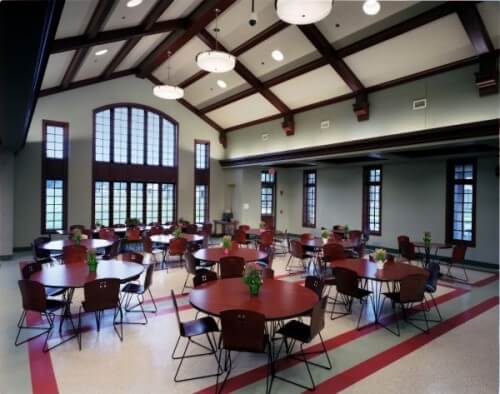
Currey Ingram Academy addresses the education of students with average to high intelligence whose learning needs depend upon personalized instruction and unique teaching methods. The school provides small classes, one-on-one tutorials, and Individualized Learning Plans (ILP) which promote communication between teachers and parents, as well as realistic assessments of a student’s strengths, weaknesses, and academic goals. Uniquely, Currey Ingram nurtures a Character Education program to acknowledge and advance the social, behavioral, and moral development of all students. Each month the entire school is devoted to explaining and fostering a particular character value, such as pride, respect, or self-advocacy, and students are encouraged to recognize and apply the value within their daily lives.
Profile: co-ed day school for grades K-12
Student-Faculty Ratio: 4:1
Awards (selected): USTA Tennessee’s Educational Merit Award of 2012; featured school at the 30th Anniversary Benefit Dinner of the National Center of Learning Disabilities (NCLD) (2007); named a Blue Ribbon School of Excellence by the U.S. Department of Education (1990)
Tuition: $35,600/year (K-9); $36,690/year (10-12)
23. Humanex Academy, Englewood, CO
Humanex, short for “human experience,” strives to provide a specialized, supportive environment for students with learning disabilities and differences, anxiety, depression, and emotional issues which affect meaningful academic progress. Often “twice exceptional” students seek out Humanex Academy because they excel in one subject but struggle significantly in another. The school’s trained teachers are prepared to design coursework and study plans aimed toward such students with often considerably disparate skills. While the curriculum follows the Colorado Model Content Standards, teaching methods vary considerably from mainstream schools, with instructors offering auditory, visual, and kinesthetic ways of learning subjects and concepts that might otherwise present difficulty. Humanex teachers focus on the ways in which brain types affect learning. For students who are right-, left-, or “whole-brained,” classes and activities adapt to learning styles, and instruction both addresses weaknesses and encourages awareness of personal strengths.
Profile: co-ed day school for grades 6-12
Student-Faculty Ratio: 7:1
Tuition: $19,400/year
24. Riverview School, Cape Cod, MA
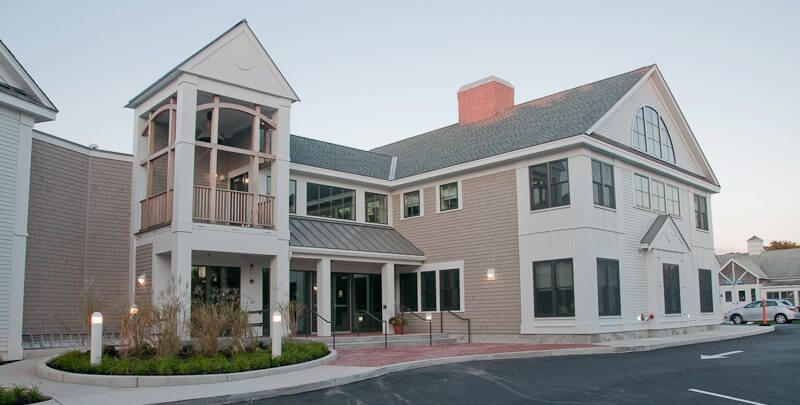
Located in the historical village of East Sandwich on Cape Cod, Riverview School offers integrated instruction and holistic care of students with complex language, learning, and cognitive disabilities. Students are encouraged to understand their needs, take risks in their learning processes, and develop critical thinking and personal advocacy skills. During the course of the year, students collaborate together and with faculty to meet personal goals and participate in enhancement options such as inclusive sports and chorus. The school offers a transitional program for graduates of the school to learn life preparation skills, including the school-based Café Riverview, a restaurant and bakery which employs students and gives them the opportunity to pursue careers in food services and hospitality.
Profile: co-ed boarding school with day school options for ages 11-22
Student-Faculty Ratio: 6:1
Awards: Student Center selected as a Green Building of America Award-Winning Project (2009)
Tuition: $74,745/year
25. Great Lakes Academy, Plano, TX
At Great Lakes Academy, students who have been labeled “at risk” in traditional environments are approached completely differently; the attention or processing disorders, Asperger’s syndrome, anxiety, depression, OCD, or sensory integration disorders that seem to stand in the way of academic success at other schools are understand as learning differences, rather than obstacles to progress. As the school’s website states: “we hope that our students not only learn to cope with their differences, but also capitalize on them.” Through specialized teaching support, small classrooms, and a nurturing school environment that encourages both academic learning and social growth, Great Lakes Academy gives students the tools to transition into the next phase of their lives.
Profile: co-ed day school for grades 1-12
Student-Faculty Ratio: 6:1
Awards: Mirabeau B. Lamar Award of Excellence (2010)
Tuition: $14,250/year (grades 1-3); $15,950/year (grades 4-8); $17,950/year (grades 9-12)
26. The Kingsbury Center, Washington, D.C.
When students with learning differences and attention struggles come to The Kingsbury Center, they are surrounded by caring, capable faculty and a supportive academic and social environment. Kingsbury’s stated goal is to transform children and young adults who experience difficulty in school settings into competent, confident learners who excel in their educational and personal lives. The school offers speech therapy, occupational/physical therapy, and psychological services to any student who needs them, and believes that when teachers and therapists modify their instructional methods based on a student’s need, the student will thrive and grow. In addition to customized lessons, the school offers myriad activities, such as art, drama, music, and athletics, which enhance a student’s development of outside interests, self-confidence, and leadership skills.
Profile: co-ed day school for grades K-12
Student-Faculty Ratio: 5:1
Tuition: $34,797/year
27. Carroll School, Waltham, MA and Lincoln, MA
Carroll Schools are designed to meet the needs of students with superior intellectual abilities who struggle with language-based learning disabilities. A Carroll student typically scores high on cognitive tests but has difficulty with reading and writing skills. Using the Orton-Gillingham approach—in which teachers diagnose a student’s specific needs and then design a curriculum for reading/spelling development which involves sequence, strategy, review, and fluency—the school encourages students to be active, self-sufficient learners. In addition to academic focus, students at Carroll have access to performing arts, studio arts, woodworking, and technology programs, including visual media instruction which includes experience with green-screen filming and stop-motion video.
Profile: co-ed day school for grades 1-9
Student-Faculty Ratio: 3:1
Tuition: $42,672/year
28. The Kildonan School, Amenia, NY
The Kildonan School specializes in understanding and attending to the needs of young people with dyslexia. Specially trained teachers, innovative methods, and superior awareness and comprehension of the challenges and advantages of dyslexia make this one-of-a-kind school a valuable resource for students and families. The school uses the Orton-Gillingham approach to teaching; each student meets daily, one-on-one, with an instructor who determines the student’s needs and evaluates her/his progress. From phonics review to reading novels and writing paragraph papers, the curriculum varies widely according to student, and focuses on building language skills and reading/writing techniques. Kildonan also offers a summer camp on the school’s 350-acre campus in the Berkshires, which combines tutoring and studying with, among other activities, water-skiing, mountain biking, and an equestrian program.
Profile: co-ed day school with boarding options for grades 2-12
Student-Faculty Ratio: 2:1
Tuition: $68,900/year (boarding); $49,900/year (day)
29. Landmark School, Prides Crossing, MA
Students come to Landmark School with dyslexia and other language-based learning difficulties and transition as confident, competent graduates of a school that focuses on improving the academic and social lives of each student. Faculty and staff concentrate on all students individually, intending to foster strengths, address weaknesses, and uncover the talents and potential present in each. Landmark uses multiple modalities in teaching, meaning that instructors acknowledge the various ways in which students learn (visual, auditory, kinesthetic, tactile) and design lessons based accordingly. For Landmark’s high school students, a college preparatory program is offered, and young adults learn the importance of critical thinking, personal organization and time management, and writing across the curriculum.
Profile: co-ed boarding school with day school options for grades 2-12
Student-Faculty Ratio: 3:1
Tuition: $67,600/year (boarding); $51,300/year (day)
30. The Greenwood School, Putney, VT
Located in picturesque Putney, VT, The Greenwood School is open to boys who struggle with language/speech, written expression, attention, or executive functioning. With a particularly low student-faculty ratio of 2:1, the school offers more than individualized attention; in addition to small classes, every day for one hour, each student meets with a trained tutor who helps to determine the student’s changing needs and address specific academic weekly issues. Additionally, many faculty live on campus and are available to provide extra help and guidance before and after school hours. Through a program that incorporates speech, language, and occupational therapy with technology assistance and enrichment opportunities such as sports, art, filmmaking, and woodworking, the school directs its students and prepares them for the next educational step.
Profile: all-boys boarding school with day options for grades 6-12
Student-Faculty Ratio: 2:1
Awards: featured in Ken Burns’ documentary The Address (2014)
Tuition: $69,890/year (boarding); $53,475/year (day)
31. The Cottage School, Roswell, GA
Advocates of The Cottage School praise its innovative approaches to academic learning and personal development. Middle and high school students who have had trouble adjusting to traditional classroom settings because of learning disabilities, attention problems, or emotional/social difficulties are presented with a supportive environment that attends to all areas of a student’s life. Of particular note is the school’s emphasis on time management and preparation for the working world; as a student progresses in the program, she/he is given assignments in two week blocks, and is expected to complete tasks and plan her/his own schedule. As goals are met, students are provided with a “salary” which is managed by the student through her/his own bank account. Students who graduate from The Cottage School depart with money organizational skills, as well as an awareness of the responsibilities and rewards of functioning in the working world.
Profile: co-ed day school for grades 6-12 (ages 11-20)
Student-Faculty Ratio: 10:1
Tuition: $23,450/year (middle school); $24,450/year (high school)
32. The Gow School, South Wales, NY
Students with language learning disabilities, dyslexia, ADHD, auditory processing disorders, and difficulties with written expression find success at The Gow School because of its commitment to innovative teaching methods, incorporation of technology, and focus on improvement of executive functioning for those students who need extra assistance. The intensive college preparatory program encourages students to face struggles and challenge themselves; classes meet six days a week and emphasize multi-sensory learning and regular, supervised study periods. Life at Gow requires not only academic progress, but it also necessitates personal growth, from the social and etiquette skills learned in the dining halls to the teamwork and personal commitment skills learned on the athletic fields. Gow’s visual arts, theatre, and music programs ensure that students graduate from the school with both academic knowledge and appreciation for fine arts and culture.
Profile: all-boys boarding school with co-ed day school options for grades 7-12
Student-Faculty Ratio: 4:1
Tuition: $57,300/year (boarding); $36,800/year (day)
33. Oak Creek Ranch School, West Sedona, AZ
At Oak Creek Ranch School, students whose attention difficulties present challenges for success in a traditional school environment find confidence and academic achievement in a curriculum which addresses individual needs. Teachers employ various methods of instruction, including regular feedback and compensatory strategies (mnemonic devices, self-testing), and students are introduced to skills such as hierarchical task organization and note-taking. In preparation for college and the working world, juniors and seniors are required to research and produce a project which they present orally to their peers and advisors. Students at Oak Creek Ranch School have the opportunity to participate in courses such as the Leadership and Character Development program, and those who attend summer sessions take advantage of Arizona’s unique terrain with hiking, rock-climbing, and camping trips.
Profile: co-ed boarding school for ages 13-19 (grades 7-12)
Student-Faculty Ratio: 6:1
Tuition: $36,500
34. Camphill Special School, Glenmoore, PA
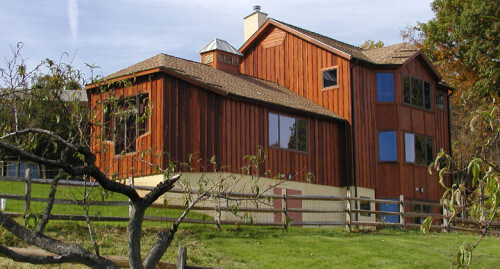
Camphill Special School, part of the Camphill educational community, whose mission is to serve students with intellectual and developmental disabilities, relies upon solid educational methods and therapeutic care. Basing its methods on the Waldorf curriculum, which ties academic learning to emotional growth, the school offers age-based courses of study alongside woodworking, dramatic arts, weaving, and other opportunities for students to discover interests and hobbies. Students in elementary and middle school are placed with one teacher for the duration of the student’s time at Camphill, and although other instructors are responsible for specialized subjects, the consistent relationship to the primary teacher becomes instrumental to significant development. The school offers physical, occupational, and artistic therapy, and emphasizes a strong community comprised of students, faculty, parents, and volunteers.
Profile: co-ed boarding school for grades K-12 with day school options
Student-Faculty Ratio: 8:1
Awards: the only private Waldorf school in North America accredited by AWSNA (Associated Waldorf Schools of North America)
Tuition: $69,000/year boarding school (day school rate by request)
35. Oxford Academy, Westbrook, CT
With a maximum enrollment of 48 students, Oxford Academy is able to provide specialized curriculum and individualized attention to students who have struggled in mainstream classrooms because of learning, attention, and emotional needs, including those who are learning English as a second language. Because the size of the school allows it to offer one-on-one classes, students at Oxford Academy benefit from the expertise of highly-trained teachers (who often live on campus) who are able to evaluate and monitor a student’s progress and customize course content and lessons. The school’s community emphasizes critical thinking, self-advocacy, and personal responsibility, and students attend to both body and mind with campus activities such as newspaper reading, foreign language study, and intermural sports, including flag football, weightlifting, and paintball.
Profile: all-boys boarding school for ages 13-20
Student-Faculty Ratio: 1:1
Tuition: $58,600/year
36. The Lab School, Washington, D.C.
At The Lab School, faculty, administration, parents, and students believe that a student who learns differently needs more than the basic accommodation provided by traditional schools. Students who struggle with learning because of dyslexia, ADHD, or other diagnoses that affect academic progress often need an individualized learning plan in order to reach full capability. Using multi-sensory teaching techniques, including art therapy, the school guides the development of its students’ conceptual and subject understanding, self-confidence, and passion for learning. At Lab, every student sets personal goals, and with the school’s support— its tutoring services, emphasis on personal responsibility, and collaboration with local businesses for student internships—those goals are often met and surpassed.
Profile: co-ed day school for grades 1-12
Student-Faculty Ratio: 4:1 lower grades; 8:1 upper grades
Tuition: $39,600/year (elementary/intermediate); $40,350/year (junior high); $41,995/year (high school)
37. The Phelps School, Malvern, PA
In 1946, Dr. Norman T. Phelps founded a school for boys whose needs require more individualized attention than traditional schools could provide. Today, the school’s motto, “dedication to the individual boy,” is applied throughout the academic community. With small classes devoted to assessing students’ skill levels and challenging each student to understand his abilities, capitalize on his strengths, and acknowledge his weaknesses, The Phelps School concentrates on developing the academic, physical, social, and moral parts of the self. A significant presence of international students broadens each boy’s awareness of worldly diversity, while a strong faculty presence (several faculty members supervise the dorms) ensures close student-teacher relationships which are conducive to learning.
Profile: all-boys boarding school with day school options for grades 7-12
Student-Faculty Ratio: 4:1
Tuition: $44,500/year boarding; $25,000/year day
38. Cumberland Academy of Georgia, Sandy Springs, GA
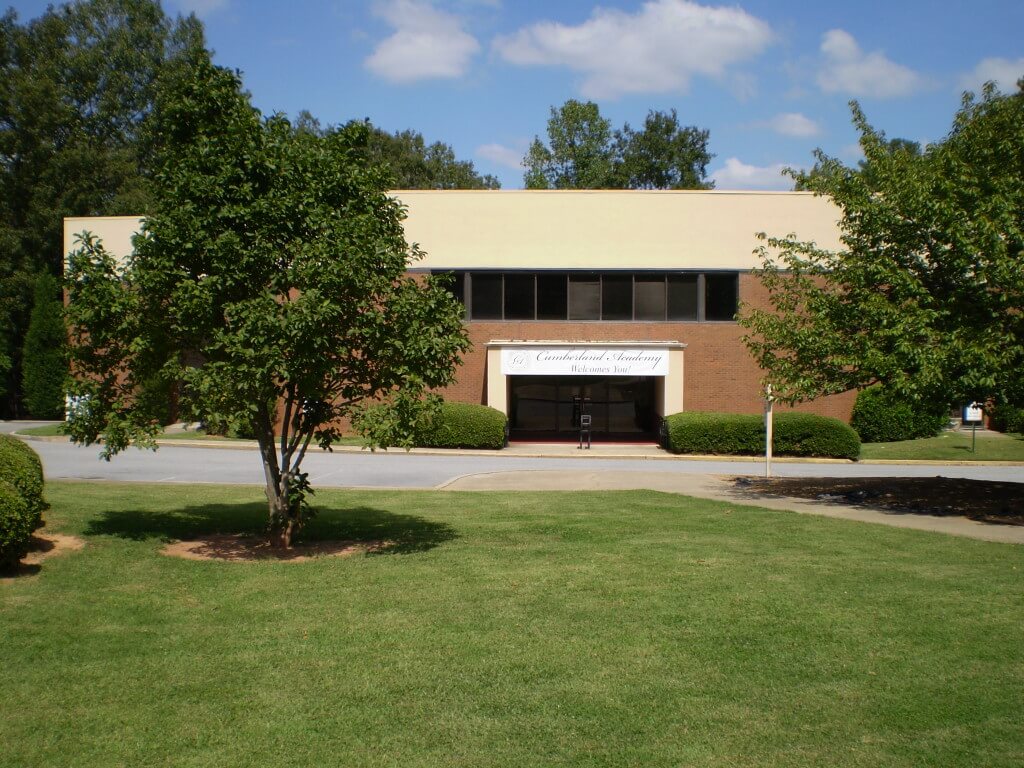
Cumberland Academy ensures success, whether a student struggles with academic or social needs, or whether she/he has been diagnosed with high functioning autism, Asperger’s, ADHD, or other learning differences which make learning in a traditional classroom particularly difficult. Teachers and counselors work with each student to provide the most appropriate program, and while many students are taught according to grade-level standards, the school also offers its Trailblazers program, in which students of several ages gather together in a more individualized setting to work at a suitable pace. Students at all levels participate in pragmatics (social skills instruction), fine arts, athletics, overnight trips, culinary arts, and hands-on science excursions. Additionally, Cumberland offers a post-graduate program to assist young adults in applying for college, managing and paying personal bills, and networking in the world of employment.
Profile: co-ed day school for grades 4-12
Student-Faculty Ratio: 6:1
Tuition: $21,500/year
39. Oakwood School, Annandale, VA
As a school in which over 75% of teachers hold Master’s degrees or higher, Oakwood School promises to provide superior comprehensive education to students with learning differences who have not reached their potential in a traditional school setting. Using a team model concept in which students are assigned to a team consisting of two teachers and a group of peers, the school creates a setting for ultimate learning potential. The instructors teach both math and reading, which encourages application of concepts across the curriculum, and students have the opportunity to work with members of other groups when two teams combine for social studies and science classes. One advantage of the team approach is the system of support and close evaluation which results from working in small groups. Students at Oakwood School benefit from its technologically advanced classrooms, academic and social affective offerings, and extracurricular activities, such as fitness, theatre, art, and music clubs.
Profile: co-ed day school for grades K-8
Student-Faculty Ratio: 4:1
Awards: named a U.S. Department of Education Blue Ribbon School (2014)
Tuition: $31,200/year
40. The Schenck School, Atlanta, GA
At The Schenck School, students who have had difficulties with reading and written expression due to dyslexia or other type of learning difference encounter trained teachers who use methods and design lessons based on individual need. Employing a pure Orton-Gillingham approach, instructors incorporate elements of visual, auditory, and kinesthetic learning to produce the most comprehensive curriculum possible. Depending upon a student’s level, instruction begins with emphasis on letters and sounds as a basis for teaching reading and writing. With the understanding that students of high intelligence simply learn concepts differently, teachers offer strategies such as metacognition for memory and association, and present information in a sequential manner. As knowledge is gained, students affirm and apply it through classroom practice and one-on-one tutoring. While most students spend about 2-3 years at The Schenck School, the learning strategies and self confidence gained lasts a lifetime.
Profile: co-ed day school for grades K-6
Student-Faculty Ratio: 4:1
Awards: named a Top Workplace (2013) by the Atlanta Journal-Constitution
Tuition: $28,930/year
41. Forman School, Litchfield, CT
Founded in 1930, Forman School specializes in meeting the needs of students who learn differently, whether because of dyslexia, ADHD, or executive functioning difficulties. Its comprehensive curriculum is influenced by the reading innovator, Dr. Samuel T. Orton (co-founder of the Orton-Gillingham method of reading), and by Albert Einstein, one of the school’s first board members who himself struggled with reading in school. Currently, as a college preparatory school, Forman provides for the academic needs of its students and ensures that in addition to gaining the subject knowledge that students will need to attend university, students also learn to analyze and think critically in general. Every student is required to take Thinking and Writing, a course which emphasizes how the writing process is foremost about critical thinking, creativity, and collaboration. Students leave Forman with both academic skills and a better understanding of how their own needs and personalities affect their learning and progress.
Profile: co-ed boarding school for grades 9-12 with day options
Student-Faculty Ratio: 4:1
Tuition: $66,100/year (boarding); $54,000/year (day)
42. Trident Academy, Mt. Pleasant, SC
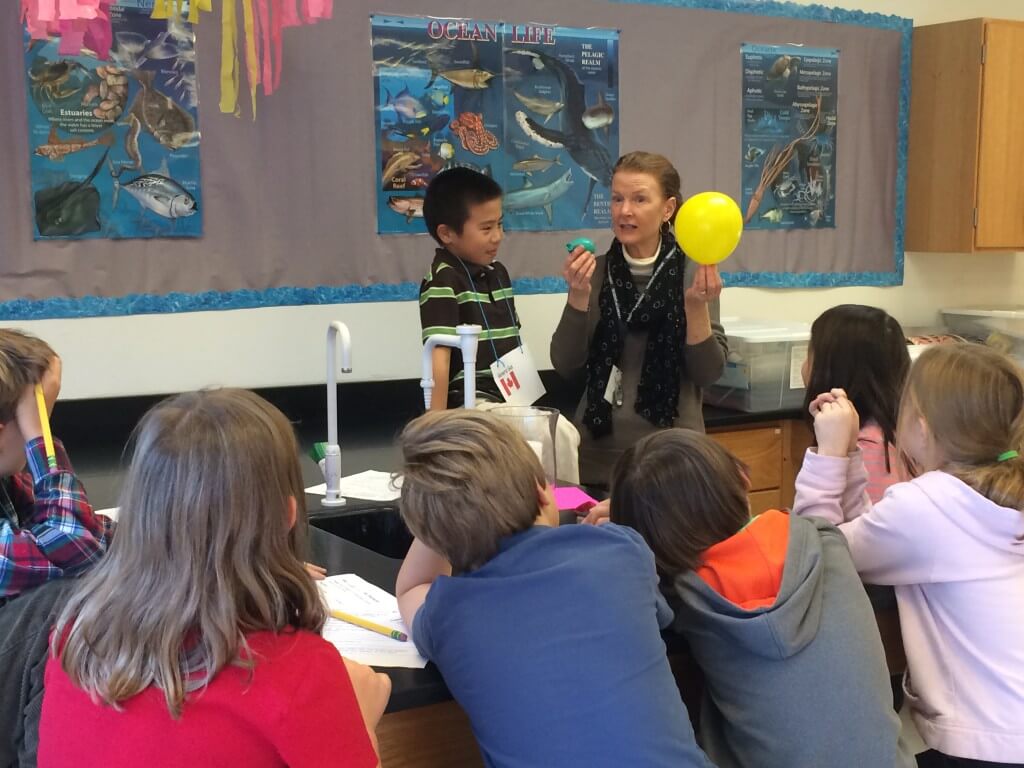
As an accredited school for children with learning differences including dyslexia, dyscalculia, non-verbal learning disabilities, Asperger’s, and attention struggles, Trident Academy provides multi-sensory instruction in a supportive environment. While its Orton-Gillingham approach emphasizes instruction in reading and writing, the school ensures that cross-curricular collaboration occurs among all departments so that students may apply knowledge and build upon each learned skill. Trident’s program includes Language Enrichment and Development (LEAD) for focusing on language-related tasks beginning with handwriting and working up to vocabulary and written expression. Students attend one LEAD class per day, and for those who require additional assistance, after-school academic therapy services are available. With 98% of its students going on to attend college/university, Trident Academy ensures individualized, creative attention that produces results.
Profile: co-ed day school for grades K-5 (transitioning to K-8 in 2014/2015)
Student-Faculty Ratio: 3:1
Tuition: $27,030/year (new families); $25,530/year (returning families)
43. Centreville School, Centreville, DE
Centreville School emphasizes the importance of early intervention in young children’s language and motor developmental needs. The Early Start program offers occupational and speech therapy, and students meet with a reading specialist and psychologist to ensure preparedness for Kindergarten and beyond. For elementary and middle school students, Centreville provides a core academic curriculum comprised of reading, math, science, social sciences, history, art, technology, and physical education. The school’s Social Intelligence program focuses on socialization and management of behavior and emotions, and prepares individuals for transition to mainstream schools or college.
Profile: co-ed day school for ages 3-14
Student-Faculty Ratio: 4:1
Tuition: $27,225/year
44. Miriam School, St. Louis, MO
Miriam School takes a team approach toward educating its students. Its small classes, specialized instruction, and custom curricula accommodate the needs of its students who are challenged with learning, speech/language, sensory-motor, attention, and social skill delays. Miriam’s Learning Center provides evaluative, therapeutic, and tutoring services for students and families after school, in the evening, and on weekends, and its day school program feature multi-grade classrooms with expert teachers who support each student with logical, sequential writing instruction and math practice. The school’s attention to the student’s comprehensive needs takes form in social skills groups and recreation classes. Miriam School’s students always transition equipped with the academic, social, and emotional tools to ensure future educational success.
Profile: co-ed day school for age 4-grade 8
Student-Faculty Ratio: 10:1
Awards: Deaconess Foundation Award (2007)
Tuition: $51,425/year boarding; $27,470/year day
45. The dePaul School, Louisville, KY
In the 1960s, the dePaul School opened as a place for students with learning differences who were not succeeding in mainstream classrooms, or whose needs were not being addressed in their educational settings. Today, the school provides a creative, individualized learning environment for students with a variety of needs, from difficulty with subjects such as reading or mathematics, to struggles with organization and time management. When students arrive at dePaul, they are provided with a Map for Success, a teaching strategy which combines multi-sensory, attention-based learning with a structured class setting and emphasis on practiced skills. Each student learns to integrate his/her education within daily life, even beyond the classroom. For example, as instructors demonstrate effective ways to process information, they help students to be aware of the times in which they lose focus, so that students learn to identify such situations and cope with them in and out of class. The dePaul School focuses on challenging its students, building upon acquired knowledge, and providing an education that attends to a student’s academic, social, behavioral, and physical needs.
Profile: co-ed day school for grades K-8
Student-Faculty Ratio: 8:1
Tuition: $15,650/year
46. The Summit School, Edgewater, MD
As a leader in diagnosing and understanding dyslexia and its manifestations, The Summit School provides unparalleled help for children with dyslexia, executive functioning, and other learning differences. Summit’s students are bright and emotionally sound, but they often experience frustration with reading and other academic tasks. Once the school evaluates a student and assesses his/her specific needs, trained teachers create curricula which both challenges a student and offers structured learning at a doable pace. Summit recognizes that students with language-based learning differences are often not sufficiently helped with once-a-week tutoring, but instead require daily, intense assistance that begins with sound/letter recognition and works up to sentence structure and word function (grammar). In addition to its detailed academic program, the school offers technology instruction, including an iPad for every sixth and seventh grade student.
Profile: co-ed day school for grades 1-8
Student-Faculty Ratio: 4:1
Awards: selected as a 2008-2009 National Association of Special Education Teachers School of Excellence (2008); awarded Non-Profit of the Year by the Annapolis and Anne Arundel County Chamber of Commerce (2008)
Tuition: $28,472/year
47. Chamberlain International School, Middleboro, MA
Chamberlain International School accepts students from around the world with learning or emotional challenges which make succeeding in mainstream schools difficult. Upon acceptance, students are assigned to a therapist, clinician, or social worker (depending upon the individual needs) who assists the student throughout her/his duration at the school. Chamberlain’s intent is to wholly serve the student and her/his parents by focusing on three main aspects of a young person’s development: educational, clinical, and social life. In addition to the school’s strong academic and therapeutic programs, it also offers instruction in art, music, drama, automotive technology, and aviation. All students take part in an enrichment program, which complement the academic curriculum, and encourage development of skills and outside interests. For example, students who participate in the auto mechanics program have the opportunity to take on a project of re-building a car, while those in the aviation program get to fly planes and build up credits toward a pilot’s license.
Profile: co-ed boarding school for ages 11-22 with day options
Student-Faculty Ratio: 8:1
Awards: teacher Marge Rose received Direct Care Worker of the Year from The National Association of Private Special Education Centers (NAPSEC) (2014)
Tuition: upon request
48. The Siena School, Silver Spring, MD
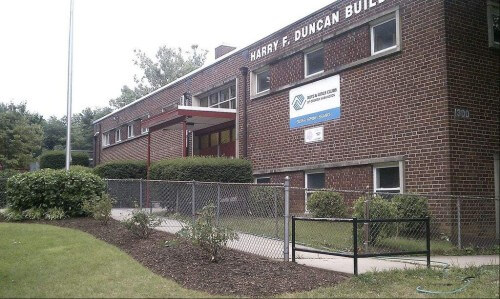
Taking its name from the town Siena in Italy as a nod to that region’s rich artistic heritage, Siena School is a creative and inspired educational haven for students with language-based learning disabilities such as dyslexia, and those whose academic performances have not matched their intellectual capabilities. The school focuses on college readiness, and prepares its students with the tools and techniques they will need to succeed. Each student receives individualized instruction and lessons which build upon previous learning, so that knowledge is relevant and makes sense. As its name indicates, Siena School is dedicated to fostering artistic skills and art appreciation in all of its students. With an “Artist-in-Residence” who assists in student projects such as, among many productions, an art, geometry, and photography collaboration, a “shortened Shakespeare” festival, and a school poetry and short fiction anthology, Siena School combines academic instruction with personal growth and character development.
Profile: co-ed day school for grades 4-12
Student-Faculty Ratio: 5:1
Awards: certified as a 2014 Maryland Green School by The Maryland Association of Environmental and Outdoor Education (MAEOE)
Tuition: $33,856/year grades 4-8; $35,463/year grades 9-12
49. Monarch School, Houston, TX
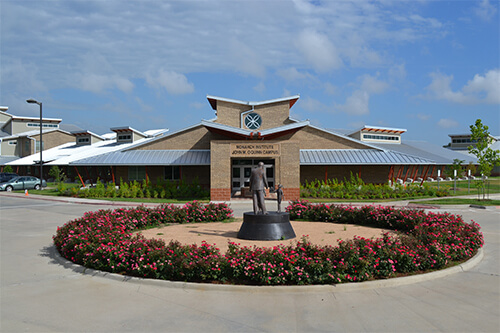
Asserting that “learning must be learner-centered and intrinsically motivated,” Monarch School services students with attention and learning disabilities, difficulty with social and emotional regulation, Tourette Syndrome, seizure disorders, and traumatic brain injuries. The school’s articulated “Fore Core Goals” address each student’s needs comprehensively, working to ensure that a student achieves self-regulation and awareness, executive functioning, relationship development, and academic and professional competence. Students often enter Monarch School as passive, unmotivated learners, and through the school’s expert instruction and challenging curriculum, they grow into independent thinkers with a passion for education.
Profile: therapeutic day school for grades pre-K-12
Student-Faculty Ratio: 2.5:1
Awards (selected): NAPSEC Award for Leadership and Innovation in Special Education (2014)
Tuition: ranges from $14,000-$53,000 depending on the program
50. The Bedford School, Fairburn, Georgia
The Bedford School was founded in 1985 for the purpose of assisting students who have trouble organizing, producing, or finishing school work due to cognitive, social, or non-verbal learning disabilities. Bedford’s goal is to diagnose each student and provide a structured, individualized academic plan which responds to a student’s needs and prepares her/him for transition to future educational environments. The faculty at The Bedford School recognize that learning disabilities may result in frustration, and at times, low self image, and each program emphasizes not only academic improvement, but also personal growth and positivity. Students at Bedford have the opportunity to participate in the Bedford Challenge Course, an outdoor adventure area which features rope courses and other challenging activities used to build teamwork and cooperation skills.
Profile: co-ed day school for grades 1-9 with after school care available
Student-Faculty Ratio: 5:1
Tuition: $16,950/year


